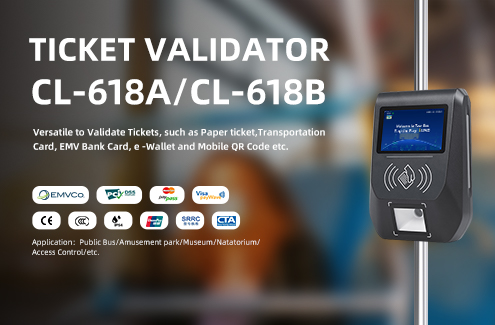Amusement parks are dynamic environments, bustling with visitors eager to enjoy the thrills of roller coasters, interactive shows, and themed attractions. The efficiency of operations in such an environment directly influences the guest experience, and one of the key elements in this is the ticketing system. Amusement park ticket validators have emerged as a vital innovation in streamlining park operations, improving guest satisfaction, and optimizing revenue collection. These ticket validators, whether digital or physical, play an essential role in ensuring smooth entry, enhancing security, and providing a more enjoyable experience for both visitors and park operators.
As technology advanced, the need for faster, more efficient, and secure ticketing solutions became increasingly evident. This is where ticket validators, particularly automated and digital validators, became an essential part of amusement park infrastructure. Today, most parks employ electronic ticket validators that can scan barcodes or QR codes, validate RFID chips, or even use biometric systems to ensure fast and accurate admission.
1. Speed and Efficiency:
l One of the primary benefits of automated ticket validators is the speed with which they allow guests to enter the park. Instead of waiting in line for manual ticket checks, visitors can simply scan their tickets at self-service kiosks or automated gates, significantly reducing bottlenecks at entrances.
l These systems can process a large number of tickets in a short amount of time, allowing parks to accommodate more visitors while maintaining smooth entry.
2. Multiple Payment Options:
l Modern ticket validators support a variety of payment methods, including QR codes, RFID cards, contactless credit/debit cards, and mobile wallets like Apple Pay and Google Pay. This flexibility ensures that guests can use the payment method most convenient for them, while also reducing the reliance on paper tickets.
l In addition, parks can offer season passes, special discounts, and loyalty programs that can be easily integrated into the ticketing system, offering personalized options for frequent visitors.
3. Improved Security:
l Electronic ticket validators enhance security by reducing the chances of fraud and unauthorized access. With QR codes, RFID chips, and biometric scanning, counterfeit tickets are easily detected.
l Some parks have even implemented facial recognition technology, further bolstering security while eliminating the need for guests to carry physical tickets. These systems can cross-check personal details, ensuring that the person entering the park is the legitimate ticket holder.
4. Data Collection and Analytics:
l Ticket validators are often integrated with backend systems that track visitor data in real-time. This information can be invaluable for park operators, as it enables them to monitor ticket sales, track peak attendance times, and gain insights into visitor behavior.
l Such data helps with dynamic pricing (adjusting ticket prices based on demand), targeted marketing campaigns, and operational improvements, such as managing crowd flow or optimizing staff allocation.
5. Enhanced Guest Experience:
l With faster entry processes, guests experience less frustration and have more time to enjoy the park's attractions. Automated ticket validation eliminates long lines at the entrance, helping to create a positive first impression.
l In addition, self-service kiosks or mobile apps allow guests to manage their tickets, check in for reservations, and make real-time modifications to their schedules, further enhancing convenience.
6. Contactless Technology:
l In the wake of the COVID-19 pandemic, contactless ticket validation systems have gained even more prominence. By using QR codes or RFID technology, guests can enter the park without physically interacting with ticket scanners or park staff, reducing the potential for virus transmission.
l This not only provides peace of mind for guests but also aligns with the broader shift towards hygiene-conscious, socially distant solutions in public spaces.
Future Trends in Amusement Park Ticket Validators
As technology continues to evolve, amusement park ticketing systems are expected to become even more sophisticated and integrated. Here are some potential future trends:
1.Mobile Integration and App-Based Systems:
1. With the growing use of smartphones, many amusement parks are moving towards fully mobile ticketing systems. Visitors will no longer need to carry paper or plastic tickets; instead, they can use their smartphones to store tickets, receive real-time updates, and even make in-park purchases.
2. Some parks may introduce personalized apps that provide real-time navigation, wait times for rides, and tailored promotions, all synced to a guest's ticketing profile.
2.Biometric Authentication:
While some parks are already experimenting with facial recognition for ticket validation, the technology could become more widespread in the future. This would eliminate the need for any physical ticket or mobile device, allowing guests to seamlessly enter the park by simply walking up to the gate.
3.Seamless Integration with Other Systems:
Future ticket validators could become more interconnected with other park systems, such as ride reservations, food and beverage payments, and event bookings. This integration would allow visitors to manage all their park activities through a single platform, simplifying the experience and making it more user-friendly.
4.Smart Ticketing and Dynamic Pricing:
Using data analytics, ticket prices could become more dynamic, with prices adjusted based on demand, weather, or time of day. Advanced ticket validators could support this kind of flexibility, offering guests the ability to pay for entry based on real-time conditions.